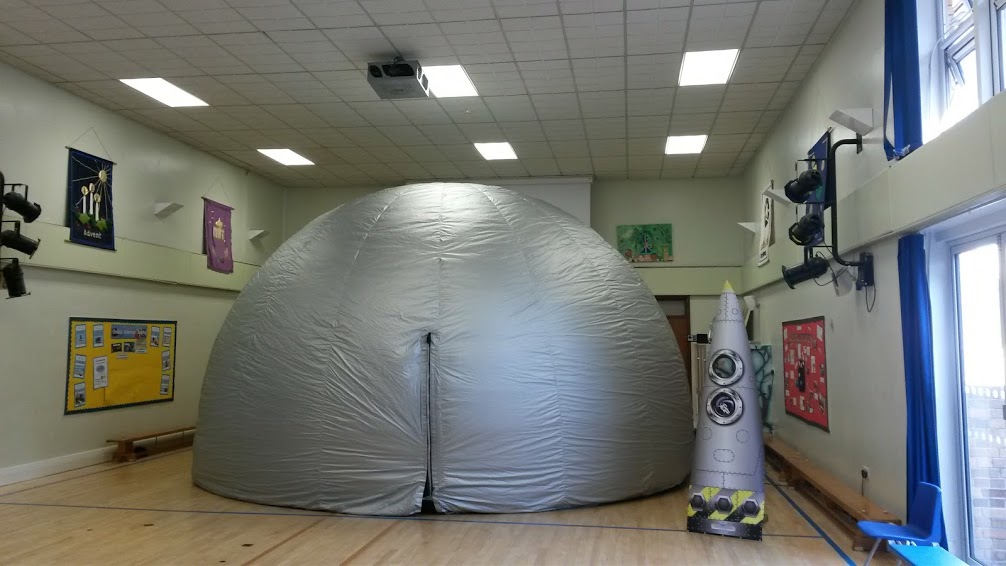To book or not to book, that is the question many teachers ask themselves when they reach the “space” topic in Science, plan the Science Week or Aspirations Week. With limited financial support available, teachers really have to pick and choose the additional activities for their class and make sure these activities provide a unique experience that cannot be duplicated in the classroom.
Sure you don’t need to be a qualified astrophysicist to explain why the Moon changes shape to the primary school kids. Or to teach how stars with different masses evolve to secondary school learners! So what is so very special about planetariums and space workshops and how can they enrich the curriculum?
Visual experience and Wow factor
Being an astronomer myself i can safely say that no fellow scientist I know ever mentioned that they were inspired to pursue a career in Astronomy by some kind of mind-blowing formula. No, those days are yet to come. Instead, many recall a visual experience (stargazing with their parents, visiting planetarium with their class, watching a meteor shower with a scout group, seeing some program on TV about space travel…) that ignited the lifetime curiosity for “what’s up there”.
Children respond really well to the visual information. For many, it is the best way to understand the concept (For example, try to explain why we have day and night to the little kids. They will “get it” straight away if you do a little demonstration with a torch and a ball, but will struggle if you explain the same idea using only words.) Planetariums not only block all the light, making it “space-dark” inside, they provide the all-around immersive 3D experience for the learners, making them feel as if they’ve been into space. As the proverb goes: “better to see something once than to hear about it a thousand times”! The journey through Space is the one children will not forget!
Talk by a Space expert
We know from experience that an idea presented by an expert seems to have a greater value and influence on us than the one coming from a novice. A talk by an expert can have a bigger impact on the children’s learning too.
Planetarium presenters are astronomers, science teachers and educators with a vast knowledge of the subject and passion for Astronomy. The deep knowledge allows them to adapt the presentation for any age/ ability group and make it accessible, yet challenging. The inspirational presentation, relevant and up-to-date information and competent answers will ignite the curiosity, broaden the understanding of how the Universe works and help the visitors link the new space information to the knowledge from other disciplines.
Additional resources
Many planetariums and space workshops design their own follow-up activities and provide additional educational resources to help the teachers incorporate the planetarium visit into the classroom learning. Lesson plans, quizzes, printouts, carefully selected links to online information will be a valuable contribution to any space-themed school lesson.
Conclusion
Planetariums and space workshops are powerful informal educational tools, that, combined with a traditional classroom learning, provide an effective and exciting way to learn about Space.
A number of studies exploring the influence of the planetarium visits on the classroom learning support this statement. For example, in the PhD dissertation “The role of the planetarium in students’ attitudes, learning, and thinking about astronomical concepts” we read: “The results of this study showed that the immersive environment and unique capabilities of a digital planetarium positively influenced students’ attitudes, learning, retention, and thinking”.
You will find various mobile planetariums, space workshops and space related activities on the BookSchoolWorkshop website.

